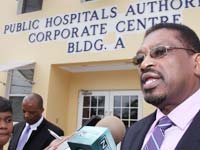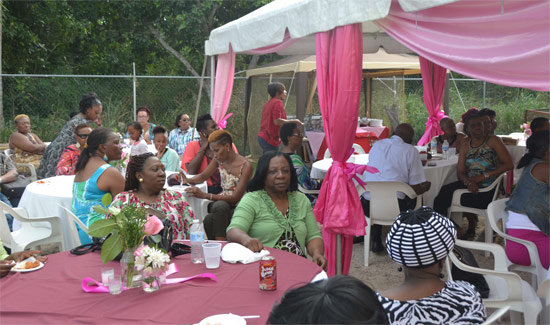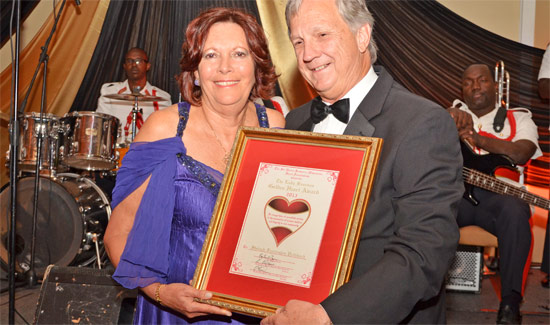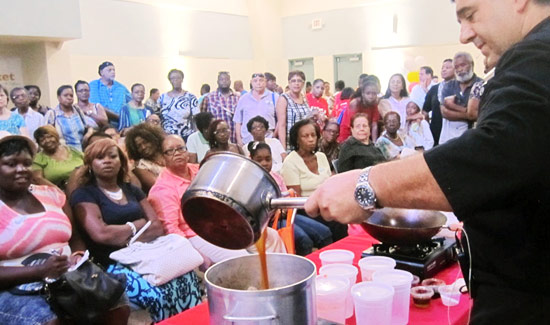
NASSAU, The Bahamas — The country’s Tele-medicine programme will be further expanded to include a Tele-ambulatory component, Minister of Health Dr. the Hon. Hubert A. Minnis said Friday.
Dr. Minnis said the Tele-ambulatory programme, which will be launched in New Providence with at least one Emergency Medical Service vehicle (Princess Margaret Hospital) being outfitted with Tele-medicine capability in its initial stage, will play a major role in expanding critical care to victims, at the scene, of traumatic events such as shootings, knifings and road traffic crashes.
Emergency medicine physicians at the Accident and Emergency Department of the Princess Margaret Hospital, led by Dr. Colin Bullard, an Emergency Medicine Specialist and Coordinator of the Tele-medicine Programme – will be able to diagnose and commence treatment of trauma patients on site via video-conferencing.
Dr. Minnis said this capability will not only significantly reduce the time between trauma and treatment, but will also have a domino effect on the management of trauma and other cases at the Princess Margaret Hospital as increased demand for bed space is one of the negatives associated with increased trauma cases.
The Tele-ambulatory service is part of a wide-scale initiative by officials of the Ministry of Health, the Department of Public Health and the Public Hospitals Authority to address treatment of the rising number of trauma cases either presenting, or being transported to, the Accident and Emergency Department of the Princess Margaret Hospital.
Health officials have developed a number of other initiatives to address the issue, including expanding the Accident and Emergency Department of the Princess Margaret Hospital, and beginning work on the construction of a new treatment facility at the former City Market building on Market Street.
An education and training programme has also been established with a number of teaching and medical facilities throughout the United States and Canada whereby Bahamian emergency medicine personnel can share experiences and best practices with their international and regional counterparts via video-conferencing.
Trauma cases – including those related to shootings, knifings and traffic crashes — have “dramatically” increased the need for bed space in the Accident and Emergency Section of the Princess Margaret Hospital.
“The whole idea is that trauma physicians in the emergency room will be able to commence treatment of the patient at the accident site or roadside and that will improve the quality of care and improve the outcomes of those patients,” Dr. Minnis said.
“Additionally, our emergency room doctors can continue to monitor and treat the patient while en route to the hospital, which will improve the quality of critical care to the patient. There is no doubt that the introduction of the Tele-ambulatory service will have great impact not only on the quality of life of victims of trauma, but also reduce some of the costs associated with the treatment and care of trauma patients,” the Health Minister added.
Dr. Minnis said trauma cases involving gun shot and stab wounds, and injuries from road traffic crashes, are on the increase and are having “great impact” on the Princess Margaret Hospital as trauma cases “take precedence over a lot of cases because they are such an emergency or life and death situation.”
He said in addition to requiring large amounts of bed space, the cases carry significant external, internal, psychological and financial burdens on the victims and indeed the healthcare system of The Bahamas. Dr. Minnis said while the external injuries are obvious, the internal and psychological ones are less obvious and involves a wide range of care.
“Trauma cases have great impact because those cases not only take up quite a bit of bed space, but they also increase demand on the Intensive Care Unit which is thousands and thousands of dollars, in addition to placing a high level of demand on the human resources of the healthcare facility insofar as surgical and medical staff are concerned,” Dr. Minnis said.
“Trauma patients can also use up most of the blood supply at any institution which could result in minor surgeries being delayed or postponed. For example, if you have a patient come in with gunshot wounds and requires 20-30 pints of blood, that’s a very significant amount of blood needed and could put a strain on the supply.
“We have recognised all of this, however, and have developed a number of initiatives to move forward and deal with that which include the expansion of the A&E Department, the introduction of Tele-Ambulatory programme, the construction of the facility at Market Street and the inter-connectivity with Jackson memorial and the rest of the world to ensure that our physicians and medical personnel are delivering the best possible care,” Dr. Minnis added.
By Matt Maura
Bahamas Information Services



